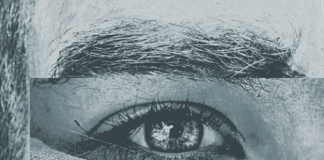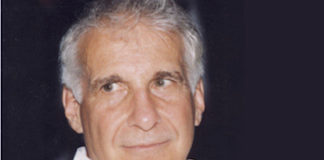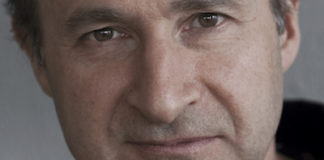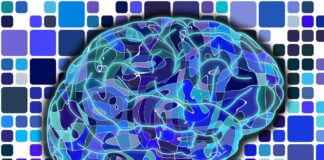Tag: neuroscience
Irving Kirsch: The Placebo Effect and What It Tells Us About...
Dr Irving Kirsch is Associate Director of the Program in Placebo Studies and lecturer in medicine at the Harvard Medical School and Beth Israel Deaconess Medical Center. He joins us this week to discuss his research into the placebo effect and what it tells us about the efficacy of antidepressant drugs.
Emotional Intelligence Needs a Rewrite
From Nautilus: The traditional notion of emotional intelligence is based on two assumptions: that it is possible to detect others' emotions accurately, and that emotions...
Female Brains are More Active?
From Discover Magazine: Headlines in various news sources reporting on a new study claim that women's brains have been found to be more active than...
The Man With the Most Famous Brain in Science
From STAT: In 1998, a graduate student at the Montreal Neurological Institute named Colin Holmes underwent 27 brain scans and combined them into one high-quality...
Peter Breggin, MD: The Conscience of Psychiatry
On this episode of the MIA Radio podcast, we present part one of an interview with Dr. Peter Breggin about his career, his views on psychiatry and recent developments with the Michelle Carter trial in which he testified as an expert medical witness.
Jim van Os: Rethinking Biological Psychiatry
Psychiatrist Jim van Os is Chairman of the Department of Psychiatry and Psychology at Maastricht University Medical Centre, Maastricht, The Netherlands. He challenges current diagnostic conceptions of schizophrenia and other mental disorders, and offers a vision for creating a new paradigm of mental health care.
Political Neuroscience: “Growth Mindsets” and Disability
From Neuroskeptic: The British government is launching a new initiative, the "Health and Work Conversation," a one-hour conversation in which welfare claimants receiving financial support...
When is Stress Good for You?
In this piece for Aeon, Bruce McEwen discusses how "good stress," "tolerable stress," and "toxic stress" act epigenetically on our brain structure, and how we can...
Benzodiazepine Awareness: Raising Global Understanding
Benzodiazepine Awareness seeks to raise global awareness of iatrogenic benzodiazepine dependence, the dangers of its adverse effects and the associated withdrawal syndrome, which can last for years.
Tell Us 5 Things About Your Book: ‘The Mind of God’
From The New York Times: In his new book The Mind of God, neurologist Jay Lombard uses his experience studying neuroscience to discuss philosophical and spiritual...
Peter Gøtzsche: The Pharmaceutical Manufacturers Dominance of Mental Healthcare
Professor Peter Gøtzsche is Director of the Nordic Cochrane Centre in Denmark and discusses his background in research, his views on antidepressant prescribing and how pharmaceutical manufacturers have influenced mental healthcare.
Power Causes Brain Damage
From The Atlantic: New research suggests that power may impair neural processes involved in feeling empathy and understanding others' perspectives. Recalling experiences of powerlessness can help...
Moral Enhancement Technologies are Reportedly Ineffective, Impractical, and Unwise
A new paper published in Bioethics assesses proposals to “enhance morality” through neuropharmacological and neurotechnological interventions.
Researchers Find that Textbooks Include Biased Information About ADHD
A review of academic textbooks finds that they often leave out effect sizes and molecular genetics findings, both of which suggest minimal impact of genetics on ADHD. Instead, textbooks focus on overblown conclusions from behavioral studies.
Brain Stimulation Research Lacking in Reproducibility and Scientific Integrity
Questionable research practices and poor reproducibility in electrical brain stimulation (EBS) studies.
Researchers Fail to Predict Criminal Intent with Brain Scans
A new study in the journal PNAS explores whether brain scans are ineffective at identifying criminal intent in carefully designed situations.
Researchers Question Link Between Genetics and Depression
A new study, published in the journal Molecular Psychiatry, found no link between genetics and the occurrence of depressive symptoms.
Touches Early in Life may Make an Impact on Newborns’ Brains
From Science News: A recent study found that early tactile experiences are associated with important differences in infants' brain responses and and patterns.
Article →
How Brain Scientists Forgot That Brains Have Owners
From The Atlantic: Five neuroscientists have published a new paper arguing that the field of neuroscience has become too focused on technology and has de-prioritized the...
A New Paradigm for Psychiatry: Answering the Call from the UN
Once biochemical psychiatry is discarded, which will inevitably happen, what will replace it? The approach I will describe here is consistent with the nature of consciousness itself, with the neuroscience of the brain, with child development and attachment.
Neuroscience-based Treatment Program Proposed for Adolescent Depression
A study published in Frontiers in Human Neuroscience proposes a new model for the treatment of adolescents diagnosed with major depressive disorder (MDD).
Brain Scans Cannot Differentiate Between Mental Health Conditions
A new study analyzing over 21,000 participants found that differences in activation of brain regions in different psychological “disorders” may have been overestimated, and confirms that there is still no brain scan capable of diagnosing a mental health concern.
“Final decision? Why the Brain Keeps on Changing its Mind”
For Aeon, neuroscientist Stephen Fleming, discusses new studies attempting to understand the process through which 'changing one's mind' occurs in the brain. "Psychologists have long...
“The Addiction Habit”
For aeon, neuroscientist and psychologist Marc Lewis declares, “Addiction changes the brain but it's not a disease that can be cured with medicine. In...
“Mesmerising” – Emergent Neuroscience of Hypnosis
For Aeon, science writer Erik Vance dives into the history of hypnosis and connects with new research being done in psychiatry and neuroscience.
Article →

































